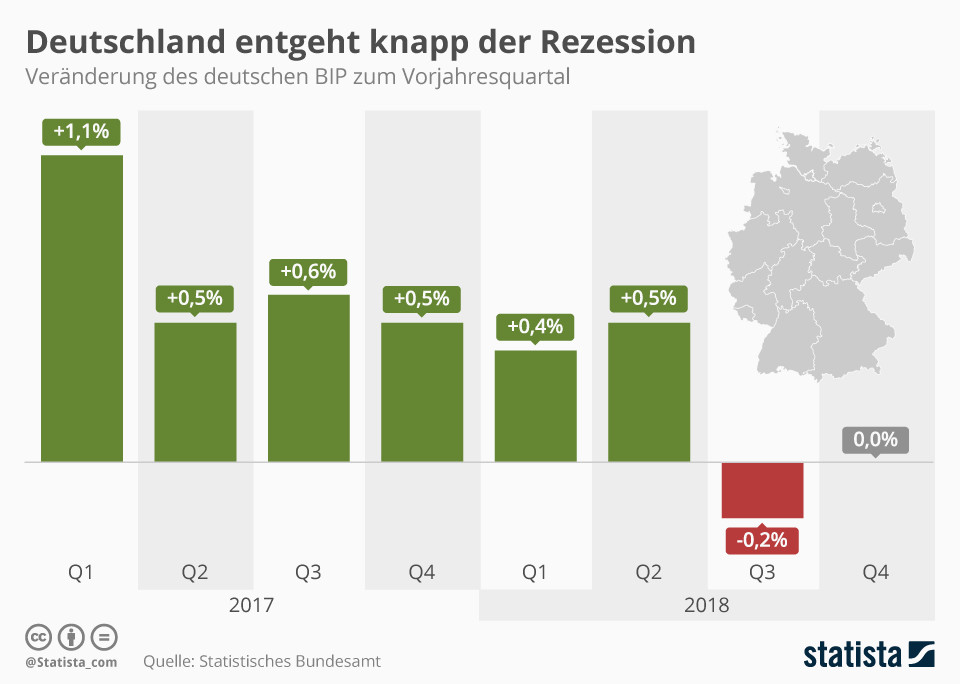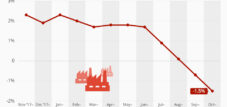The German economy stagnated in the fourth quarter of 2018, as the Federal Statistical Office reported yesterday. This means that Germany narrowly avoided a recession – i.e. a shrinking economic output in at least two consecutive quarters. As the graphic shows, economic output shrank by 0.2 percent in the third quarter of 2018. For the entire year, the German economy grew by 1.4 percent - slightly less than the 1.5 percent initially estimated in January. This made 2018 the ninth year of growth in a row, although the pace has slowed.
GDP growth figures published by Germany today reveal a country on the knife edge of a recession. After shrinking by 0.2 percent in Q3, the European economic powerhouse stagnated in Q4 with 0.0 percent growth on 2017. A recession is defined as at least two consecutive quarters of contraction. Despite its close shave, the stalling of Germany's economy in 2018 represents the country's weakest rate of growth in five years. The finger of blame has been pointed mainly at Brexit uncertainty and ongoing global trade disputes as business confidence dropped for the fifth straight month in January 2019.


